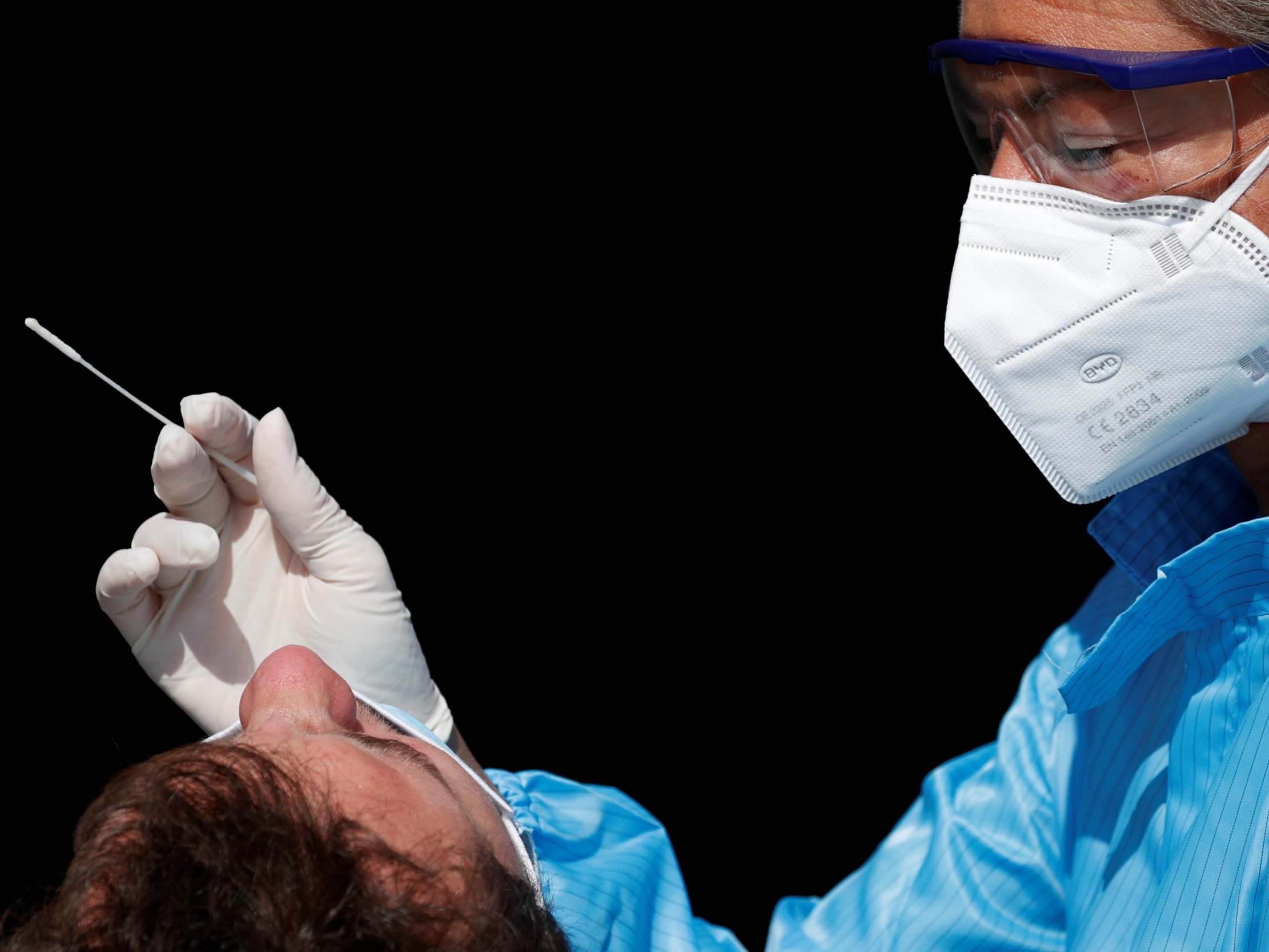Coronavirus: Government commits £500m for 20-minute Covid test trials
Pilots of repeat testing come amid claims of ‘postcode lottery’ for existing tests

The government is to spend £500m on trials of a new 20-minute coronavirus test in which people will be repeatedly checked for the virus.
The no-swab saliva tests are already under way among students and staff at the University of Southampton and four schools in the area, with testing to be expanded, while the funding will also be used to launch a new community-wide trial of repeat population testing in Salford, Greater Manchester.
Numbers of coronavirus cases in Britain are at a relatively low level, but England’s chief medical officer, Professor Chris Whitty, has warned that containing the virus could become more difficult in winter, particularly with the return of children to school and with more people returning to offices and other workplaces.
Meanwhile, the BBC has reported that there is a “postcode lottery” for testing, with authorities prioritising coronavirus testing in some areas while rationing it in others. This has resulted in some people with severe symptoms having to drive more than 100 miles for a swab.
Public health experts have warned that any such rationing will lead to new spikes being missed.
The health secretary, Matt Hancock, said: “Testing is a vital line of defence in combating this pandemic.
“Over the past six months we have built, almost from scratch, one of the biggest testing systems in the world.
“We need to use every new innovation at our disposal to expand the use of testing, and build the mass testing capability that can help suppress the virus and enable more of the things that make life worth living.
“We are backing innovative new tests that are fast, accurate and easier to use, and will maximise the impact and scale of testing, helping us to get back to a more normal way of life.”
The Department of Health and Social Care (DHSC) said saliva-based testing will be used for the pilot in Salford, which will involve the city council and other local partners.
A select number of residents will be invited for a weekly test, with the pilot performing up to 250 tests a day.
The initial focus will be on high-footfall areas of Salford, such as retail areas, public services, transport and faith spaces.
Its aim is to identify positive coronavirus cases early, including those with no or minor symptoms, so people know to self-isolate.
Results will inform how repeat community testing could be scaled up across the country.
In Southampton, the second phase of a no-swab saliva-test pilot is due to begin this week.
It will see a weekly testing model trialled, with more than 2,100 pupils and staff across four schools participating.
The work is led by a partnership of the University of Southampton, Southampton City Council and the NHS.
Meanwhile, in Hampshire, the pilot of a 20-minute coronavirus test will be expanded “to further explore the applications of mobile testing in different settings”, the DHSC said.
Funding will also be used to extend capacity for existing polymerase chain reaction testing currently being used in the UK.
Baroness Dido Harding, interim executive chairperson of the National Institute for Health Protection, the body replacing Public Health England, said: “New testing technologies and methods are vital to keep the system evolving and improving, especially as we assess how routine testing could help pick up cases of the virus earlier.
“We will continue to scale up our testing capacity by expanding our network of testing sites and investing in new technologies to reach even more people through NHS Test and Trace.”
Additional reporting by PA
Subscribe to Independent Premium to bookmark this article
Want to bookmark your favourite articles and stories to read or reference later? Start your Independent Premium subscription today.

Join our commenting forum
Join thought-provoking conversations, follow other Independent readers and see their replies